Now is a great time for roses. They are in bloom and showing off their beautiful and vibrant color. Check out some helpful tips about roses below and stop by for our sale on select Knock Out and Double Knock Out Roses.
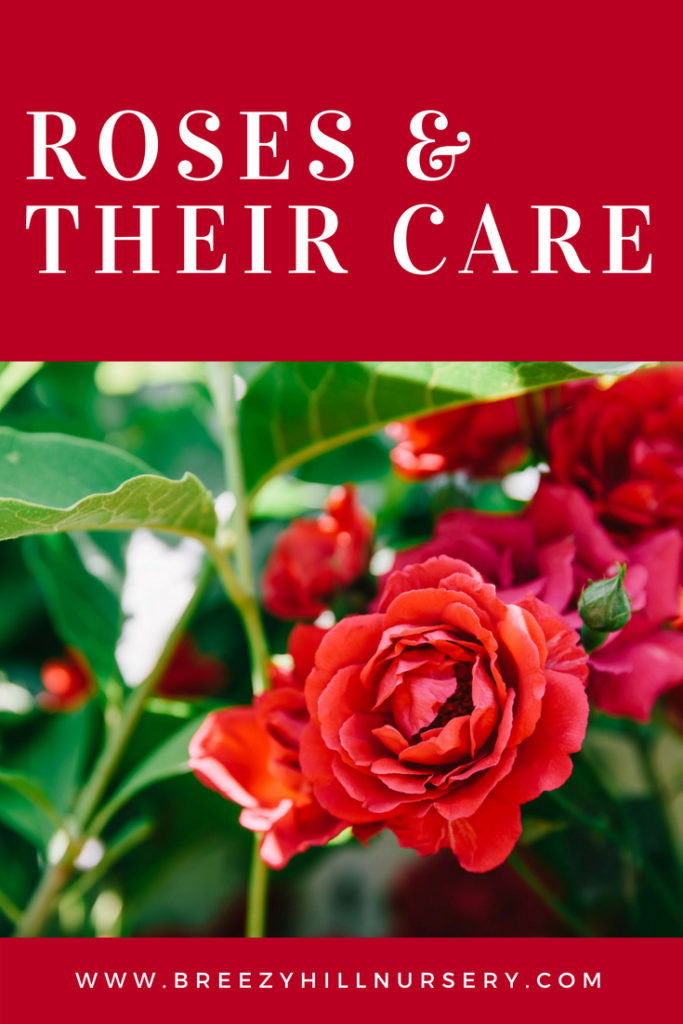
General Rose Care:
 -Roses are woody plants, but the flowers and leaves are mostly water. Without sufficient water, the plants become hardened off. The flowers become smaller and flowering decreases. During hot weather, the plants wilt and unless they can transpire, they cannot cool. Apply 1 inch of water weekly or when the plants wilt.
-Roses are woody plants, but the flowers and leaves are mostly water. Without sufficient water, the plants become hardened off. The flowers become smaller and flowering decreases. During hot weather, the plants wilt and unless they can transpire, they cannot cool. Apply 1 inch of water weekly or when the plants wilt.
– Check the soil before watering to see if it is too dry or too wet. The plants will wilt if the soil is too wet as well. If this is the case, pull back the mulch and cultivate it lightly to air it out.
– Keep your rose plants growing vigorously. The faster they grow, the more flowers you get. Vigorous plants are more able to resist certain diseases and repair injuries quicker.
-Remove flowers as soon as they drop their petals. The sooner the cut is made, the sooner a new flower will develop on that stem.
-Roses benefit from constant tending. Remove diseased or damaged twigs each time you are in the garden. Notice how the plants are growing. Make sure no suckers are starting from the root-stocks. These shoots will have more than 5 leaflets on each leaf. The leaflets are smaller and have deeper saw teeth.
Rose Types:
Roses are certainly loved by many for their iconic beautiful blooms and romantic notion. There are two general types of roses on the market today, the hybrid rose and the shrub rose.
Learn More about them below:
Shrub Roses
Shrub roses typically have single or double blooms and are slightly more natural looking than hybrid roses. Some of them have fragrance and others do not. In general, they range from 2′ to 5′ tall and wide. Their flowers may be simpler than the hybrids, but they typically are more winter hardy and easier to care for. They do have some care requirements and guidelines that are listed below:
- Site in a location of 4 or more hours of sun a day.
- Fully hydrate the plant prior to planting to help reduce the risk of transplant shock.
- Plant in well-drained soil, rich in organic matter.
- Make sure there is proper air circulation around the plants. This will allow the leaves to dry off and reduce fungal problems.
- If the weather is not cooperating, make sure that you water your roses on a regular basis, (at least 1″ of water per week). Water in the morning to allow the leaves to better dry off and reduce fungal problems.
- To optimize health and vigor, fertilize on a regular basis. A fertilizer close to 9-14-9 is preferred to keep the rose blooming yet keep the leaves green. Do not fertilize after August 15th. This will allow plants to slow down and get ready for winter.
- Remove spent blooms prior to them completely withering. Regular deadheading will encourage more flowers. Simply snip the stem off at just about the next leaf. Most shrub roses will continue blooming better then hybrid roses if deadheading is missed. However, deadheading does encourage blooming and will increase your bloom display.
- Shrub roses are typically more resistant to disease and insect damage. However, they still can have disease issues or be damaged by insects. They are very commonly fed on by Japanese beetles. These problems are greatly reduced if you follow all of the steps listed above. However as a preventative, or to correct an issue, Bayer Advanced, All-In-One Rose and Flower Care has a generally insecticide, fungicide, and a 9-14-9 fertilizer. During the growing season, it is recommended that you apply the product every 6 weeks according to the label.
- Shrub roses are definitely more winter hardy in this area. You can still slightly mound the soil and create a protected area if you want, but it is not completely necessary. If your roses are planted in an area that has a lot of winter winds, protection may be necessary depending on the variety. If you do have rabbits around your property, you may want to protect the base of your roses with a metal mesh to prevent damage to the stems.
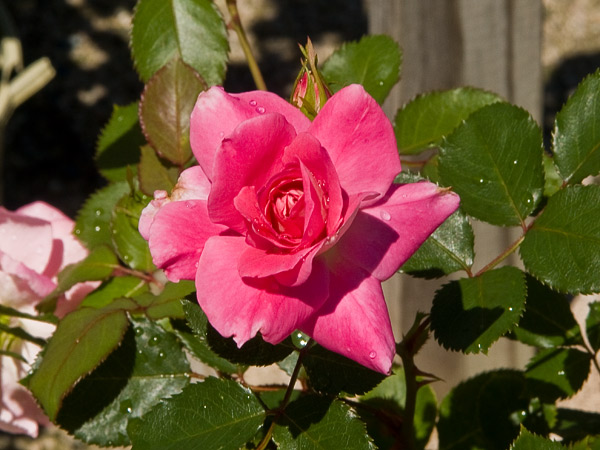
Rosa ‘Meipitac’
Hybrid Rose
Hybrid roses generally have multiple petal blooms that resemble the roses that you would buy from a florist. Generally, their blooms have a sweet scent and plants range in size from 2-3′ to as large as 8′ tall depending on the variety. All of this beauty does take some extra work and the correct planting conditions. The following are some care guidelines of for healthy hybrid roses:
- Site in a location of 4 or more hours of sun a day.
- Fully hydrate the plant prior to planting to help reduce the risk of transplant shock.
- Plant in well-drained soil rich in organic matter.
- Make sure there is proper air circulation around the plants. This will allow the leaves to dry off and reduce fungal problems.
- If the weather is not cooperating, make sure that you water your roses on a regular basis, (at least 1″ of water per week). Water in the morning to allow the leaves to dry off and reduce fungal problems.
- To optimize health and vigor, fertilize on a regular basis. A fertilizer close to 9-14-9 is preferred to keep the roses blooming yet keep the leaves green. Do not fertilize after August 15th. This will allow plants to slow down and get ready for winter.
- Remove spent blooms prior to them completely withering. Regular deadheading will encourage more flowers. Simply snip the stem off just about the next leaf.
- Hybrid roses can be fed on by an array of insects like Aphids, Thrips, Spider mites, Japanese beetles. They are also an easy target for common fungal diseases like Black spot and Powdery Mildew. These problems are greatly reduced if you follow all of the steps listed above. However as a preventative, or to correct an issue, Bayer Advanced, All-In-One Rose and Flower Care has a general insecticide, fungicide, and a 9-14-9 fertilizer. During the growing season, it is recommended that you apply the product every 6 weeks according to the label.
- Hybrid Roses often need special winterization. In November, take some time to prevent your roses from being exposed to the cold and harsh winter winds. Begin by mounding 12″ of soil around the base of the plant and refer to the following steps for each type of rose:
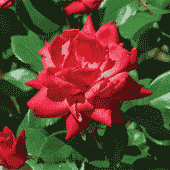
Bush Roses:
Further protect the base of the plant with a rose collar. You can use leaves, straw, or evergreen boughs to insulate the base of the rose bush. This protection can be held in place with burlap, chicken wire, or other fencing.

Climbing Roses:
You can try to manufacture your own structure to protect the rose or just let it die back further to the protected area closer to the ground.
Tree Roses:
Tip the whole plant to the ground so that the graft, (the base of the bushy part of the tree) can be covered and protected. You can also bring them into a garage or enclosed 3 season room against a heated wall.
Remove all protection in the spring after the bitter cold is over but prior to new growth starting, usually around April 20th.
Cutting & Displaying Roses For The Indoors:
- For the flowers to last the longest, cut them in the morning. The buds should be just beginning to open at the tips.
- Cut just above a “five”, (a five-leaflet leaf), near the center of the stem, leaving at least two fives on the plant.
- Immediately immerse the cut stems in warm water, at 100 degrees Fahrenheit, with floral preservative.
- Place the vase of flowers in the refrigerator for 4 hours to harden them.
- Put the roses on display.
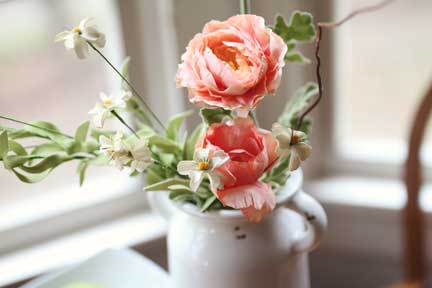
NOW ON SALE! Knock Out and Double Knock Out Roses #3, just $20! Available at both our Salem, WI Garden Center and Menomonee Falls, WI Garden Center.
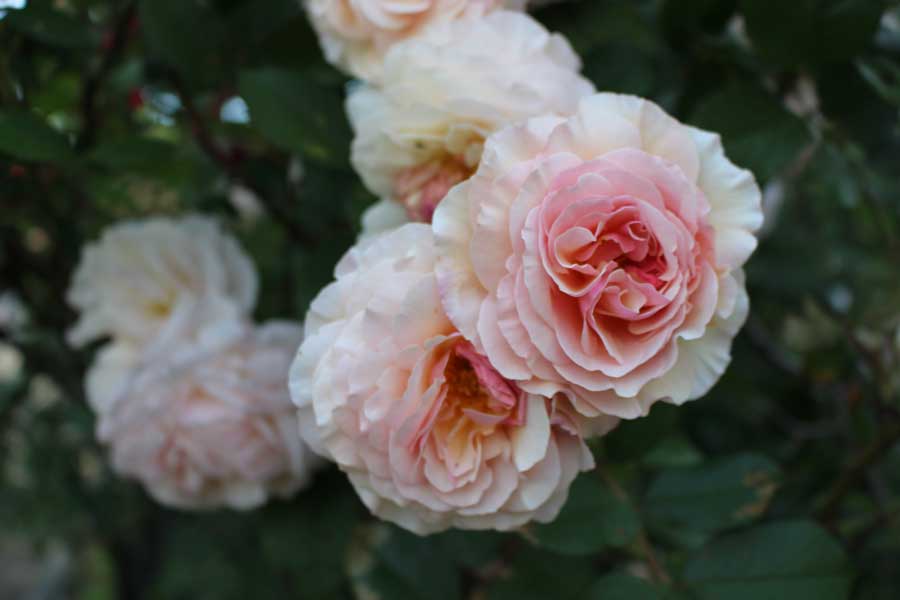
NOTE: Any of our sales associates here at Breezy Hill Nursery would be happy to answer your questions about planting and caring for your tree. Call us at (262) 537-2111.
If you have gardening questions please call or stop by our garden center.
You might also enjoy this post about perennials.

Comments are closed.